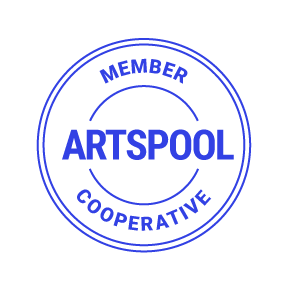Table of Contents
Annex J: Improvement Process for Members not in Good Standing
How we address issues related to a member's good standing in the cooperative.

Overview
ArtsPool Services together with its members has approved a set of guidelines for how to be a member in good standing (“MIGS”). The members have decided these guidelines are essential to maintaining an effective collective that adheres to ArtsPool Services values.
This policy outlines a process for escalating issues that arise in relation to the guidelines outlined in the MIGS document. The purpose of this policy is to define when action is needed and detail each step of the process so that both members and ArtsPool Services staff know what to expect in the event of a MIGS issue.
Criteria for initiating MIGS escalation process
Issues will only be escalated if they meet the following criteria:
- The issue must be related to the MIGS.
- The Member has been with ArtsPool for a year or more (unless the issue is highly egregious or causes legal issues).
- The issue must be chronic, and the Member’s Operational Contact must have been given feedback regarding the issue multiple times.
MIGS escalation process
Step 1: Identifying MIGS issues, first notice
The Member’s Service Team will decide during a quarterly huddle meeting, or on a more urgent basis if necessary, that the issue needs to be addressed, based on the criteria outlined above. The Member’s Service Team will consider the best timeline for bringing this up with the Member, with the understanding that though these issues may come up during moments of crisis, the issue may be more effectively resolved outside of those moments.
A representative of the Member’s Service Team sends a first notice to Member Operational Contact, scheduling a meeting to address the issue, and working with the Member to create a timeline for improvement. Communication to the Member will specify that this escalation process is being initiated.
In the messaging, using the MIGS guideline, ArtsPool Services staff will:
- Address the problem, outlining the facts of the situation and how it affects the membership.
- Recognize positive behaviors.
- Request a meeting to define concrete actions for improvement and a timeline for those actions.
Step 2: Attempting to rectify MIGs issues
The representative from the Member’s Service Team (or other staff from the Service Team, as needed) will meet with Member to discuss the issue and create a timeline for improvement. When meeting Member, ArtsPool Services staff will make sure that at the end there is a list of actionable items, and will schedule a check-in at a future date (based on improvement timeline discussion).
Step 3: Second notice, as needed
After meeting with Member, Member’s Service Team will watch for improvement over the discussed timeline. If there is none, the representative of the Member’s Service Team will raise the issue with ArtsPool’s Management Personnel, who will decide whether additional time will be provided or whether a second notice should be sent. The second notice to Member will note that improvement has not been made, including a summary of arguments supporting that position, and that there has been an escalation to the Management Personnel.
Step 4: Escalation
If there is no positive response indicating a change in the behavior of concern from Member within one week, the Management Personnel will conduct their own investigation regarding the issue within 30 calendar days. The investigation will include at least one meeting with Member’s Service Team and one meeting with Member to understand all sides of the issue. The Management Personnel may request other meetings as needed, and ArtsPool Services staff and Members agree to comply with those requests.
If the Management Personnel are not able to resolve the problem, they will meet and make a decision as to whether Member should remain in ArtsPool, consulting with ArtsPool’s Steering Committee if necessary. The Management Personnel will communicate their decision in writing to the Member Service Team and Member. If it is determined by the Management Personnel that Member should not remain in ArtsPool, they will then provide notice to Member that their Service Agreement will be terminated according to the TOS. The determination of the Management Personnel shall be final and binding upon the parties without right of appeal or judicial review.
In accordance with ArtsPool’s Conflict of Interest Policy, the Management Personnel may appoint a disinterested party (i.e. non-conflicted member of the Steering Committee) to investigate in the stead of any conflicted party on the Management Personnel.
Any decision of the Management Personnel may be enforced by an appropriate court with jurisdiction over a party. Such judgment shall be binding, final, and not appealable.
Each of the parties hereto hereby irrevocably waives all right to trial by jury in any action, proceeding or counterclaim (whether based on contract, tort, or otherwise) arising out of or relating to the Services.
How did we do?
Annex I: Dispute Resolution
Annex M: General Legal Provisions
